Freedom of expression is a fundamental pillar of democracy. It’s a non-negotiable. Whether it is a BJP worker arrest in West Bengal or a liberal “journalist” arrested in Uttar Pradesh, speech should never be prosecuted, criminally or otherwise (with obvious exceptions for credible threats of violence).
Period.
That said, the intensity of people’s reaction generally varies depending on the magnitude of what has gone wrong. For example, a murder on the road in broad daylight might get people all riled up. Someone crossing the same road without waiting for the signal, while also wrong, would probably not cause as much of a reaction.
Let me share with you, therefore, the statement made by the Editor’s Guild of India about the arrest of journalist Prashant Kanojia in Uttar Pradesh.
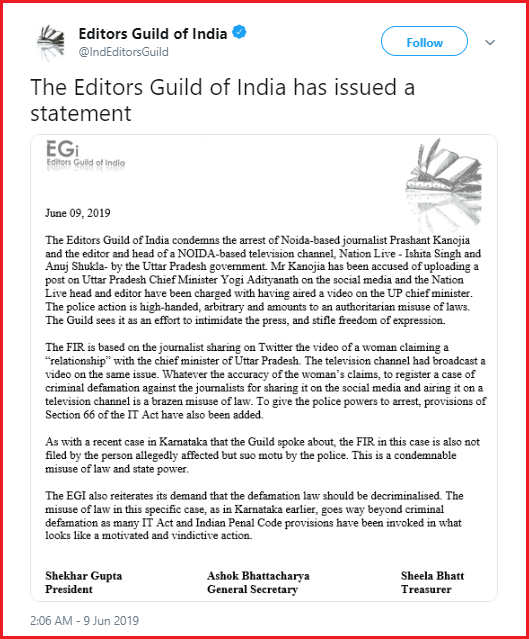
“Authoritarian misuse of laws”
“Brazen misuse of law”
“Condemnable misuse of law”
The Editor’s Guild insisted on making its point known by repeating essentially the same expression three times!
An unequivocal, no holds barred, stinging statement spanning four full paragraphs and 291 words. All governments in power need to read this.
Now let me show you the statement issued by the same set of people at the Editor’s Guild when a Doordarshan cameraman was murdered by leftists in Chhattisgarh last year.
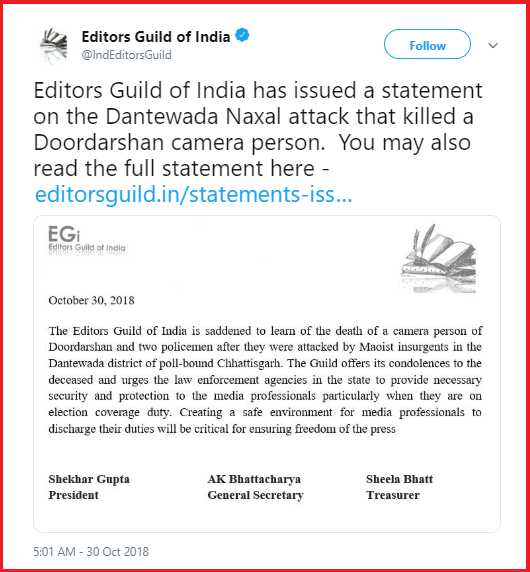
Wow, that is heartfelt!
One measly paragraph. That’s not a lot of paragraphs.
And 93 words. That’s less than one-third of the 291 words that the statement in support of Prashant Kanojia got.
Notice how the victim who was murdered by leftists is only referred to as “cameraperson of Doordarshan”. If this unfortunate victim had a name, the Editors Guild certainly could not be bothered enough to find out what it was. In contrast, Kanojia’s name is mentioned multiple times in the June 9 statement.
And notice how the second statement does not contain the word “condemn” anywhere. Apparently, the Editors’ Guild did not find that necessary. However, the statement on Kanojia did call the police action a “condemnable misuse of law”.
And when you read the one paragraph statement about the murdered DD cameraman, it becomes even more clear just how little thought they put into it.
The Editors Guild offered “condolences to the deceased”. What does that even mean? The condolence usually goes to the family and friends of the deceased and not the deceased themselves!!! It’s the sort of embarrassing grammar mistake that happens when someone is writing a half-hearted statement, without thinking. And doesn’t care enough about the whole thing to spend 30 seconds proofreading what has been written.
You tell me: what do you think the Editors Guild cares about more? A DD cameraman getting murdered by Naxals. Or a “journalist” arrested in UP over a tweet?
In order to have a thriving democracy, it is important that respected institutions such as the Editors Guild be always seen as fair and even-handed. And I would suggest that the Editors Guild learns from the most respectable of our institutions: the Hon. Supreme Court.
Here is the view of the Hon. Supreme Court in the case of BJP worker Priyanka Sharma arrested over a Facebook post.
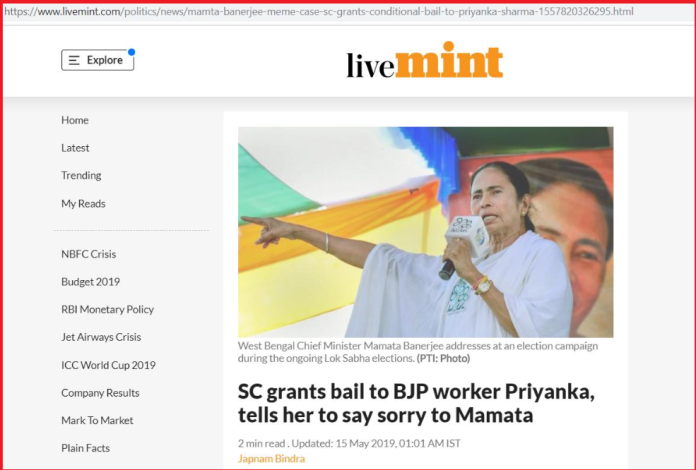
And now here is the Hon. SC deciding on the case of Prashant Kanojia arrested over a tweet.
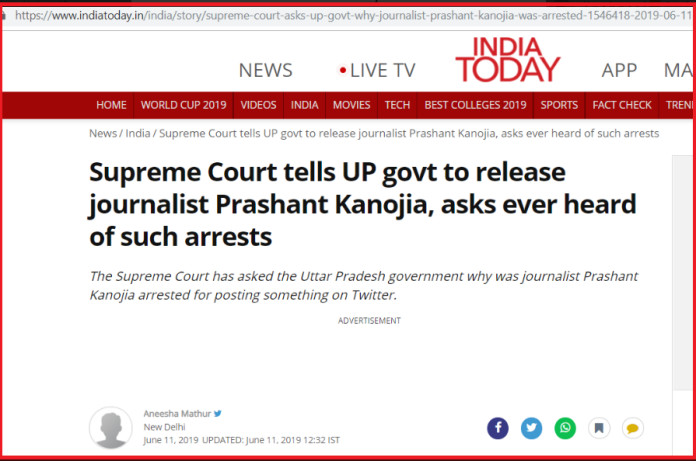
And here is Article 14 of the Indian Constitution, which promises Equality before the law.
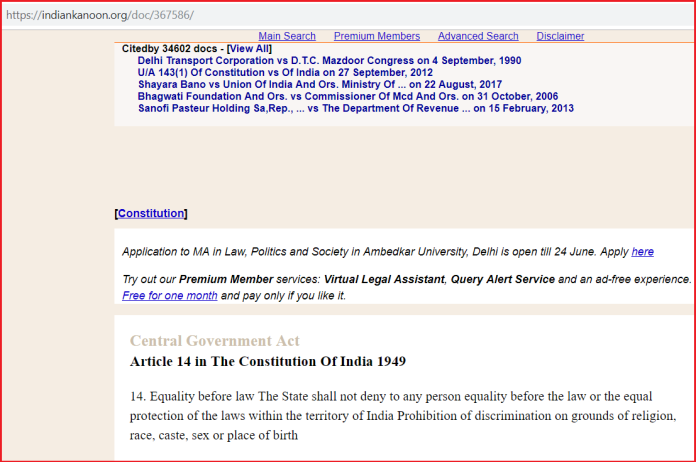
Many thanks to the Hon. SC for clarifying the meaning of Article 14. While apologies might be required for Facebook posts, it seems they are not required for Twitter posts. Get it?
Everyone, including the Editors Guild, can learn something here.



